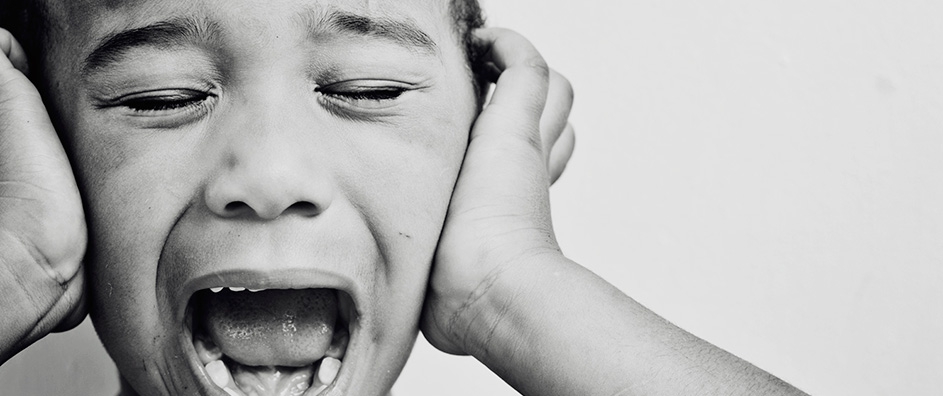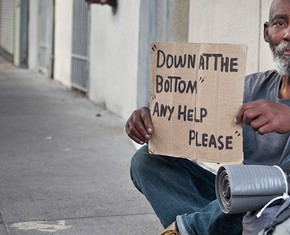The views expressed in our content reflect individual perspectives and do not represent the authoritative views of the Baha'i Faith.
Have you ever seen a website with a Quick Escape button?
If you visit the Canadian Department of Justice’s Family Violence website, you’ll see a little blue box on the right hand side of the screen. It says: Quick Escape: Leave this Website Now. What do you think that’s for?
Yes, it’s obviously for people who live with family violence, want to know more about it, and yet fear the violent member of their family might suddenly look over their shoulder, discover their interest, get mad and hurt someone. Too bad real life doesn’t offer us that little blue box.
Increasingly, legal, psychological and medical experts have begun to recognize the epidemic of family violence around the world, and have started to define it, outlaw it and figure out ways to stop it. Just so we know what we’re talking about, here’s a useful definition from that same Canadian site:
Family violence is when someone uses abusive behaviour to control and/or harm a member of their family, or someone with whom they have an intimate relationship.
Sounds pretty paternalistic, doesn’t it? When the word “control” pops up, you can generally assume that some form of patriarchy or paternalism has reared its ugly head:
An abuser chooses to behave violently to get what they want and gain control. Their behaviour often originates from a sense of entitlement.
Violence by men against women is caused by the misuse of power and control within a context of male privilege. Male privilege operates on an individual and societal level to maintain a situation of male dominance, where men have power over women and children. Men’s violence against women is a consequence of the inequalities between men and women, rooted in patriarchal traditions that encourage men to believe they are entitled to power and control over their partners. – SafeSteps Family Violence Response Center, Australia
Family violence can happen to anyone. Sadly, though, in approximately 95% of all reported family violence incidents, men attack and hurt women and children. That paternalistic crime—family violence is a crime in most but not all places—has become endemic in just about every community and culture.
I grew up in a violent family myself—my father, a Marine World War II veteran who had an obvious but undiagnosed and untreated case of combat-induced post-traumatic stress disorder (PTSD)—believed that the ultimate solution to most problems was violence. He had been raised to never hit a woman, so my mother escaped his violent wrath, but his three sons weren’t so lucky. Because of that violence, I wound up leaving home at the young age of 14.

So I know from experience that family violence takes a huge toll on the people who experience it. When I grew up, it wasn’t recognized or discussed much, but recently society has started to quantify the serious toll it takes on its victims. Multiple research studies show that children raised in violence-plagued families have exponentially higher rates of criminality, suicide, drug and alcohol addiction, psychiatric disorders and physical illnesses. Desensitized to aggression and violence, those children engage in high-risk behavior much more often than other children. The Childhood Domestic Violence Association reports that those who grow up with domestic violence are six times more likely to commit suicide; 50% more likely to abuse drugs and alcohol; and 74% more likely to commit a violent crime against someone else.
In other words, we inherit violence. If we see or experience it in our families in childhood, we learn it, and we’re much more likely to become violent adults ourselves. I’ve never seen a study on the subject, but I’ve always wondered: how many prisoners saw or were victims of domestic violence as children?
Experts say three things can help turn around that violent inheritance: First, we know that children and adolescents who have at least one caring, supportive adult in their lives can build resiliency and cope in positive ways. Second: if you’re that adult, ask children about their feelings and acknowledge them. Third, help them learn healthy ways of dealing with their anger or fear—and get them involved in things that make them feel good about themselves.
Baha’i communities all around the world conduct free neighborhood children’s, junior youth and youth classes on spiritual and character-related subjects, so if you’d like to start with that first step—being a caring, supportive adult—your local Baha’i community could definitely use another helpful volunteer.
The Baha’i teachings condemn all forms of domestic violence, saying that no marital partner should ever “unjustly dominate the other:”
In any group, however loving the consultation, there are nevertheless points on which, from time to time, agreement cannot be reached … There can, however, be no majority where only two parties are involved, as in the case of a husband and wife. There are, therefore, times when a wife should defer to her husband, and times when a husband should defer to his wife, but neither should ever unjustly dominate the other. – The Universal House of Justice, December 1980, The Relationship Between Husband and Wife.
Those teachings mean that the Baha’i Faith forbids the use force or violence against another person—including their family members:
The use of force by the physically strong against the weak, as a means of imposing one’s will and fulfilling one’s desires, is a flagrant transgression of the Baha’i Teachings. There can be no justification for anyone compelling another, through the use of force or through the threat of violence, to do that to which the other person is not inclined. Abdu’l-Baha has written, “O ye lovers of God! In this, the cycle of Almighty God, violence and force, constraint and oppression, are one and all condemned.” Let those who, driven by their passions or by their inability to exercise discipline in the control of their anger, might be tempted to inflict violence on another human being, be mindful of the condemnation of such disgraceful behaviour by the Revelation of Baha’u’llah.
Among the signs of moral downfall in the declining social order are the high incidence of violence within the family, the increase in degrading and cruel treatment of spouses and children, and the spread of sexual abuse. It is essential that the members of the [Baha’i] community … take the utmost care not to be drawn into acceptance of such practices because of their prevalence. They must be ever mindful of their obligation to exemplify a new way of life distinguished by its respect for the dignity and rights of all people, by its exalted moral tone, and by its freedom from oppression and from all forms of abuse. – The Universal House of Justice, 1992, Violence and Sexual Abuse of Women and Children.
You May Also Like
Comments

















İn the remaining years of his, her life, thus causing him to be a half psycologist in his constant meditations what he had done! The more important is how to avoid such oppressions and what steps should be taken in advance, because to become so much sorry does not help.